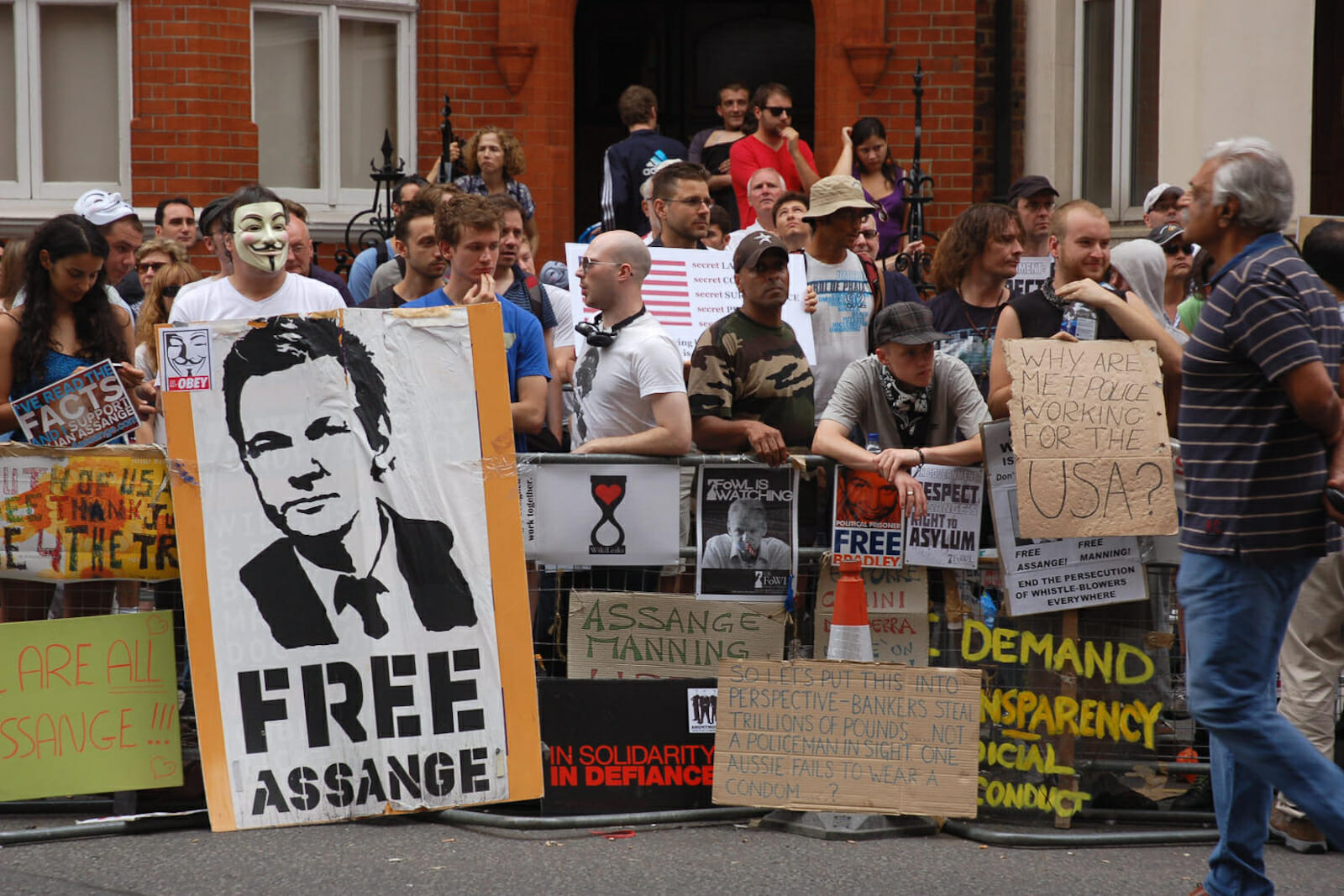
The Theater of Deception: Everyone’s Assange
Julian Assange has a few tricks left up his sleeve after his 16-month battle to avoid extradition to Sweden, and seeking asylum in the Ecuadorean embassy in London has been one of them. He has managed to throw an assortment of spanners into the works of state since becoming a figure of notoriety. He has, for instance, made a threat to run for a seat in the Australian Senate, an apt riposte to Australia’s indifference in mounting consular interventions on his behalf. He has been given his own program on the Russian network RT.
He has proven to be such a tempestuous tease. He puzzles feminists holding court because of his apparent disposition to women. (The allegations of sexual abuse are proven in advance when it comes to matters of ideology – for them, trials are irrelevant.) He enrages state authorities for an almost glib attitude to classified information – I get it, I reveal it. He annoys journalists for cutting their ill-fed grass – this is ‘scientific’ journalism in action, information raw and pure. And the psychobabble cohorts are out wanting him on the couch for analysis. Are you well, Mr. Assange?
Mr. Assange, in fact, seems better than ever. When the rules of the game are becoming clearer, he changes them. He is fast becoming a postmodern hobby horse for those who would wish he never existed – everyone has their version of Assange, their own version of the nervous computer nerd who made it to several most wanted lists, who has openly been branded a saboteur and terrorist.
In a sense, all of the opinions might have a kernel of truth to them. In the end, most don’t matter. What matters is that Assange has become indispensable. The response to Assange’s application for asylum at the Ecuadorean embassy has almost been giddy with variance. There are those who regard it as brilliant.
Ray McGovern of Consortium News finds the choice of Ecuador a good one given President Rafael Correa’s firm stance against Washington. “Correa has been a harsh critic of U.S. behavior toward Ecuador and its Latin American neighbors as well as an outspoken fan of WikiLeaks.” McGovern is also happy to speculate as to why Assange was allowed, lest he be some sort of “Houdini,” to escape his security fetters and wind up inside the Ecuadorean embassy to begin with, given its location behind Harrods department store. The British would have surely been aware of the warm Ecuadorean stance towards Assange’s plight.
In November 2010, Correa’s Deputy Foreign Minister Kintoo Lucas openly stated that “We are open to giving him residency in Ecuador, without any problem, and without any conditions.” Lucas’s wings were subsequently clipped – he had gone too far in stating an official position, but the point had been made. The Ecuadoreans have been assessing whether, in Correa’s words, there is “any death threat against Julian Assange. We have to analyze his reasons for requesting asylum if [it] has due process.” Ecuadorean envoy Ana Alban has expressed no desire to offend “a country we hold in such deep regard as the United Kingdom.” Nothing with the computer celebrity has ever been straightforward.
The reaction from conservative commentators such as Ray Walser, writing for the Heritage Foundation’s The Foundry, reveal’s a naughty, nefarious Assange who is paranoid and indifferent to state security. Such points, however, recede into the background. The traditional bully boy intentions of the US, using that ever worn threat of economic blackmail, are what matters. “A favorable decision for asylum for Assange would be ill-timed considering the fact that Ecuador’s eligibility for Andean Trade Preferences is currently under review by the U.S. Trade Representative and ultimately by the U.S. Congress.” There was, for Walser, only one victim in this – the U.S. State Department.
There is perhaps only one thing observers of the Assange imbroglio agree upon – the spiced element of drama, the piquant expectation of a surprise around the corner. Joan Smith, writing in The Independent, described Assange as a “fabulist, someone who stretches and distorts the truth to make himself look exciting in the eyes of his diminishing band of followers.” Don’t fall for the psychodrama of the “eccentric” Assange, claims Smith. Peer past his liberal tendencies towards information and mendacious governments, and you get an Assange “relaxed about links with authoritarian regimes,” hysterical about his fate and “shopping for human rights near Harrods.” Should Ecuador accede to the wishes of the Australian, they would merely be pandering to the farce.
Assange as the holder of rights rather than the disentitling tendencies of narcissism is what appeals to commentators such as Glenn Greenwald. “There is no question that the Obama justice department has convened an active grand jury to investigate whether WikiLeaks has violated the draconian Espionage Act of 1917.”
Countries might well be harassed into surrendering subjects – and Sweden could hardly be said to be immune to that, given its assistance to the CIA in rendering two suspected terrorists to Egypt, both of whom were subsequently tortured. The UN Human Rights Committee found Sweden’s conduct in that regard a violation of the global torture ban in 2006. Assange is the withering flower of the confused Zeitgeist we find ourselves in, the opportunistic hacker who extols liberty while channeling cultish imagery, the information specialist who only cares for content over effect, the revealer who keeps secrets because he knows he can, and tells everyone he has them.
In that sense, he is merely the symptom of the very states that seek to control, if not eliminate him altogether. The theatre of deception is the only reality that matters in the game of high politics, and Assange’s real sin is that he sought to challenge that monopoly with his insolence.

